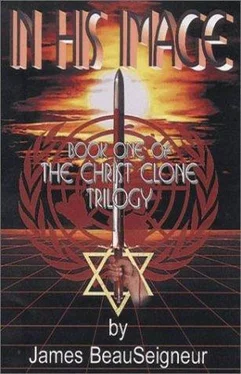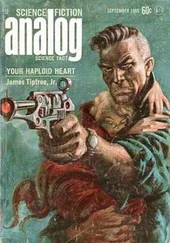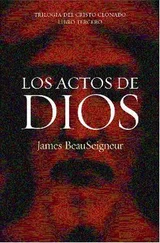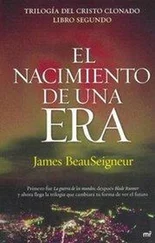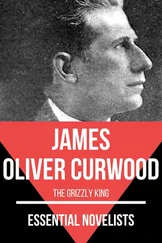"Tom, so is God. The Bible says in the book of Romans that God has made himself known to everyone. It doesn't matter whether you're Jew or Gentile, Hindu or Buddhist, Muslim or pagan. It's up to each person as an individual whether he will answer God's call. And Tom, one of the great things about it is that once you've answered that call you'll find that it's absolutely the most natural thing in the world: even," Cohen laughed at his own unexpected turn of phrase, "more natural than breathing."
The subject was worthy of further discussion but right now Tom had something else on his mind. As a transitional step from this discussion to what he really wanted to talk about, Tom decided to ask the rabbi something he had wondered about for a while. "Rabbi," he said, "there's something I don't understand: if you no longer believe as the other Hasidim believe, why do you still wear the attire and earlocks of Hasidim?" Rhoda looked away in embarrassment; she would never have asked the question herself but it was something she had often wondered about. She felt sure the rabbi would know she had mentioned it to Tom. After all, how else could Tom know what the rabbi wore?
"It is my heritage," Cohen answered. "Even the Apostle Paul, who Messiah charged with bringing the word to the gentiles, did not change his ways, except as it was necessary to accomplish his mission. Besides," added Cohen, "there are many years of wear left in these clothes. Why should I buy new?"
Cohen smiled, but Tom, who could only assume that Cohen was serious, had to bite his lip to hold back laughter.
"So, what is it I can do for you?" asked Cohen, assuming correctly that Tom and Rhoda had not stayed late just to ask him about his wardrobe.
"Well," said Tom, glad for the opportunity to get to the subject he wanted to talk about, "Rhoda and I would like for you to officiate at our wedding."
Cohen didn't respond.
"Is something the matter, Rabbi?" Rhoda asked.
Cohen hesitated. "I'm sorry. Rhoda, could I speak with you alone for just a moment?"
Cohen began to move away, and Rhoda automatically followed before Tom could even think to object. In a moment so brief he couldn't speak, they were gone and Tom heard one of the interior doors of the house close behind them.
"Rhoda," Cohen said, as soon as he was alone with her, "do you remember what I told you when I brought Tom to you?"
"You mean the prophecy?" she asked.
"Yes."
"How could I forget it? I've thought about it every day."
"Then you know that this will not be an easy marriage. You may have several years of peace – I don't know exactly how many – but then you will lose him. The prophecy is clear: 'he must bring death and die that the end and the beginning may come.'"
"I know and I understand," Rhoda answered.
"And you still want to go ahead with the marriage?" Cohen's voice showed concern but gave no hint of disapproval.
"Yes, Rabbi. More than anything."
Cohen gave her a look of caution concerning her last statement.
Rhoda saw the look and quickly corrected herself: "I mean, more than anything, as long as it is within God's will."
Cohen let it pass. "All right, then. Just as long as you're going into this with your eyes wide open."
"I am, Rabbi," Rhoda assured him.
"There is, of course, the issue of being yoked to an unbeliever, but with Tom, I have always known it was just a matter of time. We shall have to see to that immediately, and by all means before the wedding takes place."
Rhoda willingly agreed.
"Oh, by the way," Cohen asked as an afterthought, "have you told Tom about the prophecy?"
"No, Rabbi. I didn't think I should."
Cohen nodded thoughtfully. "Yes, it's probably best that you don't. Better to let God act in his own time, and not put any ideas in Tom's head."
Cohen and Rhoda went back to where Tom was waiting for them. "Well, Tom," Cohen began, by way of explanation, "your Rhoda assures me that she's going into this with her eyes open."
Tom knew how much stock Rhoda put in Cohen's opinions but he didn't much care for being talked about when he wasn't around to defend himself, and he wasn't at all sure he liked the scrutiny Cohen had apparently placed on their plans. Nonetheless, he decided to hold his tongue. He would soon be glad he did.
"Speaking of going into things with your eyes open," Cohen said, "Tom, I have a wedding gift for you. Actually, it's not from me. I was told to give you this when I first found you under the rubble. The exact timing was left up to me, and, I guess this seems like as good a time as any." Cohen came close to Tom, reached out his hand, and placed it over Tom's eyes. "Not through any power of my own," Cohen said, before Tom could even figure out what was going on, "but in the name, and through the power of Messiah Yeshua: open your eyes and see."
Two weeks later – New York
British Ambassador Jon Hansen was widely applauded as he approached the speaker's dais at the United Nations General Assembly. His speech would be translated simultaneously into Arabic, Chinese, French, Russian and Spanish, which together with English are the six official languages of the United Nations. Twice before Hansen had spoken on the subject of reorganizing the U.N. Security Council, but this time there was no doubt that the plea would be made in earnest.
Over the preceding three weeks Decker had spent countless hours working on this speech: writing drafts, condensing, expanding, adding, deleting, polishing, and working with linguists to ensure that the words spoken in English would have the proper impact when translated into the other official languages. What Hansen was about to propose would involve a major restructuring of the United Nations; his words would have to be both clearly understood and thoroughly compelling.
The message of Hansen's address was not unexpected. The press was out in force to cover the address and the seconding speeches. There was still no guarantee of getting the two-thirds vote necessary to carry the motion; too many nations would not make a commitment before the actual vote.
What made it possible now that Hansen's motion might actually pass, when before it had not been taken seriously, were the recent events in Russia. The nuclear holocaust had reduced the Russian Federation to a mere specter. Even the name was threatened as survivors in one federated region after another emerged from the rubble and declared themselves independent republics – much as had happened when the Russian Federation's predecessor, the U.S.S.R., fell apart decades before. Those were the lucky ones; in some parts of Russia there were not enough survivors to even worry about things political.
The world had been a much different place on October 24, 1945, when the United Nations officially came into being. The Second World War had just ended, and the victors – the United States, Great Britain, France, the Soviet Union, and China – made up the major powers of the world and so had established themselves as the "Big Five," giving themselves permanent member status and veto power in the United Nations Security Council. Since that time Britain had divested herself of her colonies and though influential, remained great only in name. She would trade her power on the Security Council for temporary control of the Secretariat under Hansen and the opportunity to direct the U.N.'s reorganization. "It is better to trade away now what might well be taken tomorrow," Hansen had told the British Parliament. Britain knew that the evolution of the U.N. was unstoppable. Guiding that evolution was a responsibility for which Britain felt itself uniquely qualified.
France, never truly an economic world power after World War II and ever the libertine, had turned to neo-isolationism and so had voluntarily surrendered her position as a world leader. She would not, however, so willingly surrender her power. Even as Hansen spoke, France lobbied other members to vote against the measure. China was an anomaly. Despite being one of the poorest countries, it remained a world power, if only because of its military strength and its enormous population. Because of its size, China alone of the five original Security Council members would be guaranteed a seat on the reorganized Council. Nonetheless, China would oppose the measure because its power would be diluted by half in the proposed ten member council. Her great size would make little difference in the General Assembly. Concessions made two years earlier had removed veto power of the Big Five over amending the U.N. Charter. China, like the tiniest of countries, would have only one vote. The Russian Federation, though it would protest loudly, certainly no longer had legitimate claim to permanent status on the Security Council or to veto power over its actions.
Читать дальше
